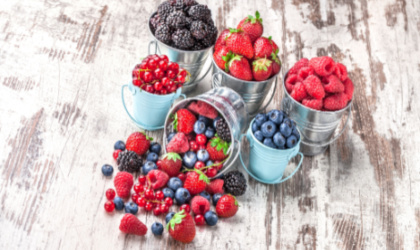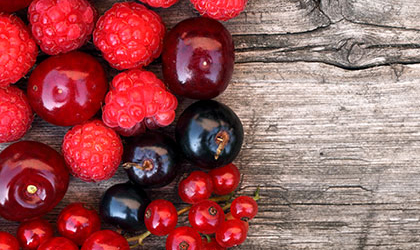
When it comes to ‘beauty’, many of us are quick to reach for the topical products lining our bathroom vanity. And while serums and moisturisers have their place in the skin health arena, there’s also something to be said about cultivating ‘beauty from within’.
The skin is an illuminating window into our overall health. And nutrition, hydration, sleep, and lifestyle choices play a role in how our skin looks and feels. So, no matter how much a celebrity-endorsed product promises, the secret to enviable glowing skin doesn’t always lie in a bottle…
Lifestyle changes for better skin
While skin ageing is determined by a range of intrinsic factors – genes and hormones, for instance – many extrinsic factors also influence skin health.
Sleep
Is there any aspect of health sleep doesn’t affect? The short answer is no. And there’s a lot of truth behind the idea of ‘beauty sleep’. As we sleep, the body undergoes huge rejuvenation and repair, replacing damaged cells with new ones. Failing to get enough sleep each night interrupts this vital period of restoration and may lead to breakouts, dehydration, and signs of ageing.
Trouble sleeping? Why not read our article on steps to help you drift off naturally?
Healthier habits
Smoking, excessive alcohol consumption, and UV exposure can cause oxidative stress in the body. Oxidative stress creates free radicals that damage the building blocks in the skin, like collagen, elastin, and hyaluronic acid.
Making healthier lifestyle choices, as well as taking care when in the sun, will support many aspects of your health – not just your skin.
Reduce stress
Most of us have felt nervous to the point of flushing or sweating. But the effects of stress on the skin extend far beyond these temporary responses. And this is down to the brain-skin axis. The release of cortisol, the stress hormone, can impact your skin in numerous ways. Chronic, unremitting stress may lead to acne, dry skin, fine lines, and wrinkles.
Stress can also increase the likelihood of making unhealthy food choices, skimping on sleep, or turning to alcohol, all of which can affect your skin.
If you’re feeling stressed, that’s okay. We all do from time to time. But try to make a conscious effort to put relaxation and self-care front and centre in your life. Find what stress-busting hacks work for you: exercise, meditate, journal, connect with others, or spend time in nature.
Hydration
Water truly is the Fountain of Youth. Hydrating the layers of our skin – otherwise known as the dermis – is the cornerstone of healthy, happy skin. Drinking plenty of water each day – around 6-8 glasses – is one of the best ways to support a glowing complexion.
Nutrition
As with hydration, the foods we choose to eat can directly impact skin health. Fruits and vegetables are crammed with antioxidants, which are known to fight the free radical damage that can lead to ageing. Similarly, the healthy fats in extra virgin olive oil, avocados, and oily fish are loaded with skin-loving properties. Plant foods, like whole grains, legumes, nuts and seeds also contain zinc, selenium, and biotin, which support skin health.
When it comes to looking after your complexion, try to live by this rule: if it grows, eat it; if it doesn’t, think twice before putting it on your plate!
Superfoods are also a great source of nutrients for healthier, happier skin.
Restoring collagen with supplements
What is collagen?
Found in your skin, hair, joints, bones, and connective tissues, collagen is the most abundant protein in the body. In fact, it makes up 30 per cent of all protein, as well as most of the protein in your skin.
What does collagen do in the skin?
It can be helpful to think of collagen as your skin’s scaffolding; it strengthens, hydrates, and improves elasticity. As you traverse childhood and teen years, your body produces adequate amounts of collagen. By your mid-20s, however, collagen starts to decline. Around the age of 25, the body produces around 1 per cent less collagen every year. The ageing process increases as you approach middle age when your collagen production drops significantly. And that’s why wrinkles, fine lines, and other signs of ageing appear over time.
Do collagen supplements work?
Many people are quick to assume collagen supplements are the answer. If we’re losing collagen, surely, we just need to replenish our stores, right? Not necessarily. As we’ve already mentioned, we have several kilos of collagen in the body. And so, there’s good reason to suggest that the few milligrams of cow collagen in a supplement are somewhat futile. Moreover, our digestive enzymes will simply break collagen down into amino acids as we can’t absorb it.
A better approach is taking a formula that supports collagen production. And that’s where powerful antioxidants, like anthocyanidins, come in.
What is Colladeen Visage?
Colladeen Visage is a specially formulated nutritional supplement delivering powerful vitamins and plant-derived active ingredients to support skin health and beauty. The combination of anthocyanidins, green tea extract, lutein and zeaxanthin are believed to naturally support collagen production and protect against the damaging effects of UV exposure, providing sun protection from within. Colladeen Visage may also reduce the appearance of spider veins.
What can you find in Colladeen Visage?
Anthocyanidins
Anthocyanidins are powerful antioxidants that give dark-skinned fruit, seeds and berries their blue, red, and purple pigments. These highly active plant compounds are known to support the important collagen structures in our skin (1). Anthocyanidins have been shown to reduce collagen breakdown and the effects associated with UV-related ageing (2). In short, a diet rich in berries, fruits and vegetables may support healthy-looking skin (3).
Green tea extract
With its origins of use dating as far back as 5,000 years, green tea extract has long been recognised for its health credentials. Green tea is rich in polyphenolic compounds, which have notable antioxidant properties.
Lutein
Plants that grow in bright sunshine have evolved special compounds and pigments to shield themselves from the sun’s harmful UV rays; lutein is one such compound.
Found in dark leafy greens, like kale, lutein is a carotenoid pigment. It’s deposited in the macula of the eye, where it filters dangerous wavelengths of light, which help prevent the delicate photoreceptor cells from being damaged. The body is believed to use lutein in a similar way, protecting against UV exposure to the skin as well as the eyes.
Zeaxanthin
Zeaxanthin is another member of the carotenoid family. Like lutein, it’s also found in the macula of the eye. Aside from its connection to macula health, zeaxanthin is a powerful antioxidant, with preliminary research suggesting it may help protect the skin from sun damage (4).
How does Colladen Visage support skin health?
Our clinical research established that our skin supplement, Colladeen Visage, may reduce the appearance of spider veins, build an internal SPF, and lead to measurable improvements in overall skin elasticity, firmness and wrinkle depth. In short, it’s a safe and natural approach to supporting skin health.
Spider veins
We conducted a study on 60 women who had spider veins on their thighs. We split the women into two groups: one group was given Colladeen Visage and the other group received a placebo.
The participants’ spider veins were visually assessed and graded using an established protocol. And this was repeated at the end of the study.
After 24 weeks, we found the group taking Colladeen Visage had a 50% reduction in the appearance of their spider veins whereas the placebo group showed no change.
Sun protection
Using the same group of women, we conducted another study to determine Colladeen Visage’s role in sun protection. We used identical tests to those used to measure the SPF level for sun creams: the MED (Minimal Erythemal Dose). Half the group took two tablets of Colladeen® Visage a day; the other half took the placebo.
At the start of the study, each person was exposed to UV light on small patches of skin for increasing lengths of time. The following day, the patches were examined to identify the shortest exposure time that caused reddening for each person.
In the group taking Colladeen Visage, the average MED increased significantly and the effect improved with time. When the measurements taken at 12 weeks were calculated as an SPF, or sun protection factor, just as they would be for sun cream, we found that an average SPF of 10 was achieved. At 24 weeks this had increased to an SPF of 15.
Taking Colladeen Visage for just 24 weeks may reduce spider veins by 50% and provide some protection against sun damage. It's worth noting, of course, that Colladeen Visage should always be used in conjunction with topical SPF; it doesn’t replace your normal sun protection regime.
The cornerstones of good skin health are the same for good overall health: getting enough sleep, making smart lifestyle choices, drinking plenty of water, and fine-tuning your nutrition. For additional skin support, Colladeen Visage is an excellent weapon in your arsenal.
Want expert nutrition advice?
Our dedicated Nutrition Advice department is a major reason for our success. Our Nutrition Advisors have a wealth of experience between them. They talk to thousands of customers every year, helping them make the right choice from our extensive product offerings. No matter how small your query, they’re happy to help. So, if you’re still unsure what to select, please reach out via email, phone, or live chat.
Call: 01892 552 175
Email: nutrition@naturesbest.co.uk
Write: Nature’s Best Ltd. Century Place, Tunbridge Wells, Kent, TN2 3BE
Want to find out more?
Read more of our resources on ageing and related content here.
References:
-
Science Direct. 2022. Lifestyle and Physiological Factors Associated with Facial Wrinkling in Men and Women. Available online: https://www.sciencedirect.com/science/article/pii/S0022202X17314082
-
Bae J. et al., Bog blueberry anthocyanidins alleviate photoaging in ultraviolet-B irradiationinduced human dermal fibroblasts. Mol Nutr Food Res. 2009;52(6):726-38.
-
Giampieri F. et al., An anthocyanin-rich strawberry extract protects against oxidative stress damage and improves mitochondrial functionality in human dermal fibroblasts exposed to an oxidising agent. Food Funct. 2014;5(8):1939-48.
-
British Skin Foundation. 2022. Cosmeceuticals – do they work?. Available online: https://www.britishskinfoundation. org.uk/Blog/cosmeceuticals-do-they-work
You Might Also Like

Olivia
Olivia Salter has always been an avid health nut. After graduating from the University of Bristol, she began working for a nutritional consultancy where she discovered her passion for all things wellness-related. There, she executed much of the company’s content marketing strategy and found her niche in health writing, publishing articles in Women’s Health, Mind Body Green, Thrive and Psychologies.
View More



